Szegedi Tudományegyetem - Ahol tudás és szándék találkozik
 Régi doktori képzéses anyagok
Régi doktori képzéses anyagok
Chair: Prof. Csaba Vágvölgyi
Department of Microbiology
H-6720 Szeged, Dóm tér 10., Hungary
Phone: (+36 62) 544 822 P
E-mail: csaba@bio.u-szeged.huAssistant chair: Prof. Éva Fekete DSc
Department of Physiology, Anatomy and Neurobiology
H–6722 Szeged, Közép fasor 52., Hungary
Phone: (+36 62) 544 123
E-mail: efekete@bio.u-szeged.hu
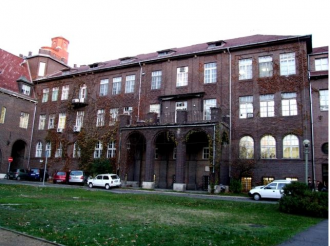 Cooperating Institutions
Cooperating Institutions
Faculty of Science of the University of Szeged
Department of Biochemistry and Molecular Biology
Department of Biotechnology
Department of Physiology, Anatomy and Neuroscience
Department of Genetics
Department of Microbiology
Department of Plant Biology
Department of Cell Biology and Molecular Medicine
Biological Research Centre of the Hungarian Academy of Sciences (BRC)
Institute of Biochemistry
Institute of Biophysics
Institute of Genetics
Institute of Plant Biology
Institute for Plant Genomics, Human Biotechnology and Bioenergy (BAYGEN)
PhD studies are possible in all biology disciplines actively exploited in the biology departments of the Faculty of Science of the University of Szeged and at the Biological Research Centre of HAS Szeged with special emphasis on molecular and experimental fields. The major fields are: anthropology, biochemistry, biotechnology, cell biology, genetics, molecular biology, neurobiology, plant biology, and plant physiology.
The Biology PhD School of University of Szeged was established at year 2000, by the unification of the former Molecular Cell Biology, and Neurobiology PhD Programmes. The PhD studies are supported by a tree-years fellowship from governmental and non-governmental sources. Recently the Biology PhD School has more than sixty students.
The Departments of University of Szeged and the research groups of Biological Research Centre have broad Hungarian and international collaboration including laboratories in Australia, Japan, the United States, the Netherlands, and in several major cities within Europe: Antwerp, Stockholm, Oxford, Göttingen, Paris, Kosice (Slovakia) and Peruggia.
Those who are interested in any of the above research fields of experimental biology are invited to visit the websites: http://www.sci.u-szeged.hu/sztettk/akar/index.htm, www.szbk.u-szeged.hu/, http://baygen.hu/index.php?option=com_frontpage&Itemid=1.
The Aim of the School is to provide courses, seminars for PhD students who have special interest in modern experimental biology.
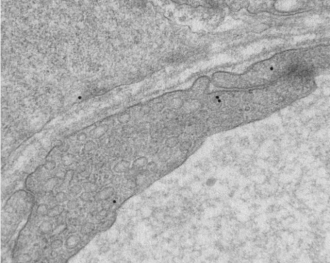 The institutes and departments have several Ph.D. courses dealing with subjects such as biochemistry, biotechnology, bioinformatics, cell biology, genetics, microbiology, molecular biology, neurobiology and plant physiology. The fellows can take classroom courses from leading scientists of the University of Szeged and Biological Research Centre of Szeged. For experimental laboratory courses and for research the PhD students can use the research facilities and equipments of the biology departments of the university as well as the BRC. These include the DNS sequencing, DNA chips, proteomics, oligonucleotid synthesis, fluorescent cell sorting, light- and electronmicroscopy, patch clamp recordings plant and animal breeding facilities.
The institutes and departments have several Ph.D. courses dealing with subjects such as biochemistry, biotechnology, bioinformatics, cell biology, genetics, microbiology, molecular biology, neurobiology and plant physiology. The fellows can take classroom courses from leading scientists of the University of Szeged and Biological Research Centre of Szeged. For experimental laboratory courses and for research the PhD students can use the research facilities and equipments of the biology departments of the university as well as the BRC. These include the DNS sequencing, DNA chips, proteomics, oligonucleotid synthesis, fluorescent cell sorting, light- and electronmicroscopy, patch clamp recordings plant and animal breeding facilities.
PhD fellowships are available from governmental sources at University of Szeged (only for Hungarian citizens), from institutional source at the Biological Research Centre of Szeged and from research grants.
A yearly Annual Research Seminar is held, where the graduating PhD students present their scientific achievements in May.
Educational programmes
1. Biochemistry
Programme director: Assoc. Prof. Mária Simon CSc
Department of Biochemistry
H–6726 Szeged, Középfasor 52., Hungary
Phone: (+36 62) 544 104 Phone/Fax: (+36 62) 544 887
E-mail: lsimon@bio.u-szeged.hu
Research Programmes
– Bio catalysis in organic solvents, enzyme stability and stabilisation (Supervisor: Assoc. Prof. Mária Simon CSc)
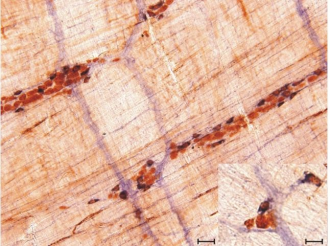 2. Biotechnology
2. Biotechnology
Programme director: Prof. Kornél Kovács DSc
Department of Biotechnology
H–6726 Szeged, Középfasor 52. Hungary
Phone: (+36 62) 544 351 Phone/Fax: (+36 62) 544 352
E-mail: kornel@brc.hu
Students interested in Biotechnology can join the research group dealing with renewable energy production and bioremediation via environmental biotechnology. The team consists of the Department of Biotechnology, University of Szeged (USZ) and the Microbial Gas Metabolism Lab of the Institute of Biophysics, Biological Research Centre (BRC), Hungarian Academy of Sciences and it comprises about 50 scientists, including doctoral students. Up to date equipments and expertise in bacterial molecular biology, fermentation technologies, protein purification and characterization, proteomics (2D-PAGE/MALDI-TOF) and environmental biotechnology analysis (BOD, COD, TOC, TON, GC, GC-MS) are available. They also operate the UNESCO Chair for Environmental Biology and the Regional Branch Office of the European Federation of Biotechnology.
Research programmes
– Molecular basis of environmental biotechnology and development of renewable energy sources: biohydrogen and biogas production, genomics and proteomics of phototrophic, methanotrophic and heterotrophic microorganisms, degradation of hazardous and organic waste. (Supervisors: Prof Kornél Kovács DSc, Assoc. Prof. Gábor Rákhely PhD, Katalin Perei PhD, Gergely Maróti PhD Department of Biotechnology and Institute of Biophysics BRC)
3. Neurobiology
Programme director: Prof. József Toldi DSc
Department of Physiology, Anatomy and Neuroscience
H–6726 Szeged, Közép fasor 52., Hungary
Phone: (+36 62) 544 153 Fax: (+36 62) 544 291
E-mail: toldi@bio.u-szeged.hu
Neurobiology is a traditionally important field of Natural Sciences at the University of Szeged. Academician Ambrus Ábrahám was the first internationally recognized neurobiologist at the USZ in the middle of the 20th century. Later on Professor Ottó Fehér initiated the research in neurophysiology. During the past decade the most sophisticated and modern methods and devices became available at the Department of Cell Biology and Molecular Medicine and at theDepartment of Physiology, Anatomy and Neuroscience. Facilities of molecular biology, light- and electron microscopy, confocal microscopy, in vivo and in vitro electrophysiology (e.g. patch clapm recordings) and behavioural study methods are available.
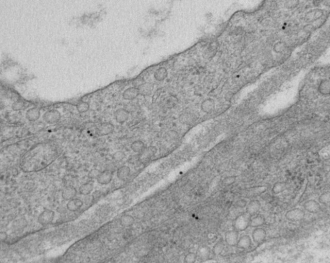 Research programmes
Research programmes
– Combined (electrophysiological, histological and behavioural) studies on neuroplasticity and neuroprotection (Supervisor: Prof. József Toldi DSc)
– Mechanisms involved in the induction, maintenance and propagation of epileptiform events (Supervisor: Prof. Magdolna Szente DSc)
– The role of identified neurons in cortical microcircuits (Supervisor: Prof. Gábor Tamás DSc)
– Structure and function of enteric nervous system (Supervisor: Prof. Éva Fekete DSc)
– Endocrinologic, cardiovascular and gastroenterologic studies (Supervisors: Prof. Ferenc A. László DSc, Ferenc László MD, DSc and Csaba Varga PhD)
– Role of sex hormones and neurosteroids in neuronal plasticity and neuroprotection (Supervisor: Prof. Árpád Párdutz DSc, Institute of Biophysics, BRC)
– In vivo and in vitro regulation of neuronal gene expression and cell fate choice (Supervisor: Prof. Károly Gulya)
4. Genetics
Programme director: Prof. Péter Maróy DSc
Department of Genetics
H–6726 Szeged, Középfasor 52., Hungary
Phone: (+36 62) 544 025 Fax: (+36 62) 544 651
E-mail: maroy@sol.cc.u-szeged.hu
Students with an interest to pursue PhD studies in genetics can work on interesting research topics and obtain practical training in versatile fields joining one of the laboratories of the Department of Genetics, Univ. Szeged andInstitute of Genetics of BRC. Research groups of the two institutes led by internationally recognised experts of their fields study wide spectra of exciting problems of basic science.
Research Programmes
– Functional studies on proteins and genes involved in symbiotic processes of plants (Supervisor: Gabriella Endre, BRC, Inst. Genetics)
– Medicago Hap Map: genetic association studies on leguminous model plant (Supervisor: Gabriella Endre, BRC, Inst. Genetics)
– Studies on putative stress genes of leguminous model plant, identified by DNS chip (Supervisor: Gabriella Endre, BRC, Inst. Genetics)
– Functional analysis of transcriptome of embryonic stem cells of Drosophila (Supervisor: Miklós Erdelyi, BRC, Inst. of Genetics)
– An analysis of the molecular background of carcinogenesis: molecular, cell biology and biochemical approaches (Supervisor: Lajos Haracska, BRC, Inst. Genetics)
– Molecular analyses of tumor markers, towards personal molecular diagnostic of tumors (Supervisor: Lajos Haracska, BRC, Inst. Genetics)
– Mutagen changes in DNA, an approach with yeast genetics Supervisor: Lajos Haracska, BRC, Inst. Genetics)
– Functional characterization of a dDAAM formin of Drosophila (Supervisor: József Mihály, BRC, Inst. Genetics:
– Molecular and cell biology studies on collagen IV mutants of Drosophila (Supervisor: Mátyás Mink, Univ. Szeged, Dept. Genetics)
– The role of human galektin-1 in the formation of tumor immune privilege (Supervisor: Éva Monostori, BRC, Inst. Genetics)
– Galectin-1 is a cell-bound immunosuppressive cytokine (Supervisor: Éva Monostori, BRC, Inst. Genetics)
– In vivo studies on the role of bone marrow mesenchymal stem cells in tumor growth and progression (Supervisor: Éva Monostori, BRC, Inst. Genetics)
– Studies of membrane transport processes during germ cell formation (Supervisor: Rita Sinka, Univ. Szeged, Dept. Genetics)
– Identification of genes involved in spermatogenesis of Drosophila (Supervisor: Rita Sinka, Univ. Szeged, Dept. Genetics)
– In situ dissection of chromatin structural units of Drosophila (Supervisor: László Sipos, BRC, Inst. Genetics)
– Identification and studies of factors influencing mutagenesis (Supervisor: Ildikó Unk: BRC, Inst. Genetics)
5. Molecular Biology
Programme director: Prof. Imre Boros DSc
Department of Biochemistry and Molecular Biology
H–6726 Szeged, Középfasor 52., Hungary
Phone: (+36 62) 544 686 Fax: (+36 62) 544 651
E-mail: borosi@bio.u-szeged.hu
Students with an interest to pursue Ph.D. studies in molecular biology can work on interesting research topics and obtain practical training in versatile fields joining one of the laboratories of the Department of Biochemistry and Molecular Biology of USZ and the Intitute of Biochemistry of BRC. Research groups of the two institutes led by internationally recognised experts of their fields study a wide spectra of exciting problems of basic science.
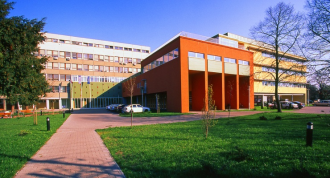 Research Programmes
Research Programmes
– Studies on Eukaryotic Transcription Regulation, the role of chromatin structure, histone modifications, epigenic gene regulation (Supervisor: Prof. Imre Boros DSc)
– Studies of sequence-specific DNA recognition by type II restriction enzymes and DNA methyltransferases (Supervisor: Res. Prof. Antal Kiss DSc, Institute of Biochemistry,BRC)
– Synthetic biology: Engineering artificial microbial genomes (Supervisor: Res. Prof. György Pósfai DSc, Institute of Biochemistry, BRC)
– Systems biology of microbial metabolism (Supervisor: Balázs Papp Ph.D., Institute of Biochemistry, BRC)
– Evolution of microbial drug resisitance (Supervisor: Csaba Pál Ph.D., Institute of Biochemistry, BRC)
– Molecular Biology of Extracellular Matrix (Supervisors: Res. Prof. Ibolya Kiss DSc and Res. Prof. Ferenc Deák DSc, Institute of Biochemistry, BRC)
– Regulation of intracellular protein degradation (Supervisor: Res. Prof. Andor Udvardy DSc, Institute of Biochemistry, BRC)
– Analysis of cell cycle regulation in eukaryotic cells (Supervisor: Peter Deák Ph.D. Institute of Biochemistry, BRC)
– Identification of mutants of circadian clock and analysis of gene regulation by ligh in Arabidopsis thaliana (Supervisor: Res. Prof. Ferenc Nagy DSc, Institute of Plant Biology, BRC)
– Mouse models of human cardiovascular and neurodegenerative diseases (Supervisor: Santha Miklós Ph.D. Institute of Biochemistry, BRC)
6. Microbiology
Programme director: Prof. Csaba Vágvölgyi DSc
Department of Microbiology
H–6726 Szeged, Közép fasor 52., Hungary
Phone: (+36 62) 544 822 Fax: (+36 62) 544 823
E-mail: csaba@bio.u-szeged.hu
The Department of Microbiology has a four decades tradition in the research of microscopic fungi and bacteria. There are five research groups, with approximately 30-40 undergraduates and 10-12 PhD students at the Department. Thus, it is large enough to provide a stimulating research environment but small enough to allow close personal interactions. The range of research interest varies from mycology and classical microbiology to molecular microbiology. The research and PhD-training activity of Department also benefits from well established relationships with other national and international partners.
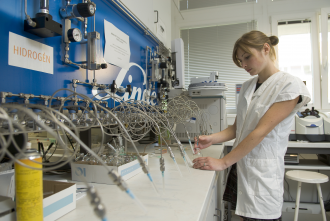 Research Programmes
Research Programmes
– Studies on zygomycetous fungi: investigation of nuclear genomes, cloning and functional characterization of selected genes (Supervisor: Prof. Csaba Vágvölgyi DSc)
– Antimicrobial peptides of microscopic fungi: structure, activity and biological function (Supervisor: László Galgóczy PhD, Prof. Csaba Vágvölgyi DS)
– Phylogenetics and biotechnological importance of the fungi belonging to the Mortierellales (Supervisor: Tamás Papp PhD, Prof. Csaba Vágvölgyi DSc)
– Molecular phylogenetic studies and investigation of secondary metabolite production (mycotoxins) of Aspergilli (Supervisor: Assoc. Prof. János Varga DSc)
– Investigation the biocontrol potential and ecophysiology of various microbial species (e.g. Bacillus, Trichoderma) species (Supervisor: Assoc. Prof. László Manczinger PhD)
– Aspergillus and Fusarium species as causative agents of keratomycosis (Supervisor: László Kredics PhD)
– Studies on the terpene biosynthetic pathways in biotechnologically important fungi (Supervisor: Tamás Papp PhD)
– Identification and mutational analysis of the nucleobase and nucleoside transporters of Aspergillus nidulans implicated in the transport of antiviral/anticancer drugs (Supervisor: Zsuzsanna Hamari PhD)
– Characterization of extrachromosomal genetic elements of yeasts (Supervisors: Assoc. Prof. Judit Kucsera PhD)
– Organisation of mitochondrial DNA in basidiomycetous yeasts (Supervisor: Assoc. Prof. Ilona Pfeiffer PhD)
– Molecular biology of Candida parapsilosis (Supervisors: Attila Gácser PhD)
7. Plant Biology
Programme director: Prof. László Erdei DSc
Department of Plant Biology
H–6726 Szeged, Közép fasor 52., Hungary
Phone: (+36 62) 544 307 Phone/Fax: (+36 62) 544 236
E-mail: erdei@bio.u-szeged.hu
The Department of Plant Biology offers wide range of topics in plant stress biology. Gas chromatography, HPLC and atomic absorption spectrophotometer, as well as laboratory for molecular biology and cell biology serve for the determination of growth regulatory substances, osmolytes and minerals, while membrane-transport processes are followed by „patch clamp” technique. Research work and education in plant basic and applied biology is supported by a friendly atmosphere and often, international community of students and scholars at this Department.
Research Programmes
– Signal transduction under abiotic stress in plants (Supervisor: Prof. László Erdei DSc)
– Acclimatization of glycophyta plants to osmotic and salt-stress: osmoregulation and antioxidants (Supervisors: Assoc. Prof. Irma Tari, Assoc. Prof. Margit Szabó CSc)
– Regulation of ion-channel functions during stress-adaptation (Supervisor: Ferenc Horváth PhD)
– Mechanisms of phytoremediation at molecular, cell and plant level (Supervisor: Prof. László Erdei DSc)
– Studies on phloem proteins and enzymes of N-metabolism during abiotic stress (Supervisor: Attila Pécsváradi PhD)
– Stress responses in cyanobacteria, gene studies using DNA chips (Supervisor: Res. Prof. Imre Vass DSc, Institute of Plant Biology, BRC)
– Interaction between regulatory elements of cell cycle on gene expression and protein interactions in alfalfa and rice (Supervisor: Attila Fehér CSc, Institute of Plant Biology, BRC)
– Towards an activator mutagenesis system in rice cell suspension, using transformation (Supervisor: Attila Fehér CSc, Institute of Plant Biology, BRC)
– Identification of genes involved in stress and pathogen resistance of wheat (Supervisor: Attila Fehér CSc, Institute of Plant Biology, BRC)
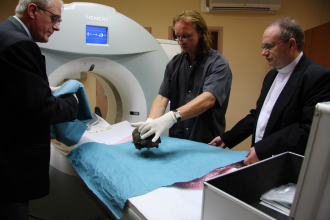
8. Human Biology
Programme director: Assoc. Prof. György Pálfi
Department of Biological Anthropology
H–6722 Szeged, Egyetem u. 2., Hungary
E-mail: palfigy@bio.u-szeged.hu
Students, who are interested in human biology, can join the PhD projects running at the Department of Biological Anthropology. The main fields of interest are paleopathology, paleo-odontology and historic anthropology from Neolithic to the Modern Ages; paleoepidemiology of infectious diseases; introduction of new medical and biological methods in anthropology and paleopathology; and biological anthropological aspects of human development and obesity.
The 20 PhD research topics of the Department of Biological Anthropology are the following:
– Anthropological and paleopathological investigation of human mummies
– Paleoradiology: X-ray and CT examinations of human bone remains
– Application of molecular methods in anthropological investigations
– Molecular anthropology and palepathology
– Paleoproteomics and investigation of the evolution of human pathogens
– Multidisciplinary investigation of the population history of the 9–11th century Carpathian Basin
– Investigation of bioarcheological series from the Southern Great Plain
– Plaeoodontological investigations of bioarcheological series
– Differential diagnostics of osteoarcheological lesions
– The paleopathology of human teeth and jaws
– Developmental anomalies of the skull and the axial skeleton in bioarcheological series
– Occurrence of tumors in bioarcheological series
– Metabolic diseases in osteorcheological samples
– The paleopathology and paleoepidemiology of specific infectious diseases
– The paleopathology of tuberculosis
– Atypical and minor forms of osteoarticular TB
– The prevalence of leprosy in bioarcheological series from the Carpathian Basin
– The population and economical history of past epidemics
– The investigation of age and development in infant remains
– Changes of body composition through the age groups
Representative dissertations (tile, author, supervisor, year)
- Ischémia okozta funkcionális és morfológiai károsodások és néhány lehetséges neuroprotekív beavatkozás vizsgálata patkány modellen, Máté Gábor Marosi, Tamás Farkas, 2009
- A nitrogén-monoxid hatása borsólevelek fotoszintetikus elektrontranszportjára, Barnabás Wodala, Ferenc Horváth and László Erdei, 2009
- Epigenetikus szabályzó faktorok azonosítása és jellemzése Drosophila melanogaster-ben Viktor Honti, Henrik Gyurkovics, 2009
- Hosszútávú szalicilsav előkezelés hatása paradicsom növények sóstressz akklimatizációjára Ágnes Szepesi, Irma Tari, 2009
- New directions in receptor research; Receptor selectivity and promiscuity Resat Cinar, Mária Szűcs, 2009
- A hidrogenáz enzim autokatalikus működésének vizsgálata Gabriella Pankotai-Bodó, Csaba Bagyinka, 2009
- A neurogliaform sejtek szerepe az agykéregben Szabolcs Oláh, Gábor Tamás, 2009
- Development and application of transgenic approaches to study the NORK gene implicated in symbiotic interactionsAriana Titiana Perhald, Attila Kereszt, 2009
- Honfoglalás kori, valamint magyar és székely populációk apai ági genetikai kapcsolatrendszerének vizsgálataBernadett Kovácsné Csányi, István Raskó, 2009
- Biochemical and pharmacological characterization of the novel endogenous opioid peptide motifs and synthetic nociceptin hexapeptide sequences Engin Bojnik, Borsodi Anna, Benyhe Sándor, 2009
- Az embriogén kompetencia kialakulása során aktiválódó gének azonosítása lucerna sejtekben és az "oxprot" gén jellemzése Mónika Tekla Domoki, Attila Fehér, 2009
- A stresszválasz és a membránok kapcsolata emlős sejtekben Enikő Éva Nagy, László Vígh, 2009
- Szabad gyökök szerepe neonatológiai kórképekben Zsuzsanna Hracskó, Ilona Szőllősiné Varga, 2009
- Növényi RHO (ROP) GTP-áz aktivált kinázok azonosítása és jellemzése Dorjgotov Dulguun, Attila Fehér, 2009
- Egy új Drosophila formin szövetspecifikus funkciójának genetikai, sejtbiológiai és biokémiai vizsgálata Tamás Matusek, József Mihály, 2009
- A nitrogén-monoxid (NO) szerepe, keletkezése és forrása auxin kezelés, valamint ozmotikus stressz alatt gyökerekben Zsuzsanna Kolbert, László Erdei, 2009
- A papain konformációstabilitása, stabilitása és alkalmazása szerves oldószeres közegben András Szabó, Mária Lehoczkiné Simon, 2009
- Egy szokatlan szerkezetű kis GTPáz növényi cirkadien órában betöltött szerepének vizsgálata Péter Gyulai, Ferenc Nagy, 2009
- Neuroplasztikus változások a központi idegrendszerben: a gonadális hormonok szerepe Anita Kurunczi, Árpád Párdutz, 2009
- A HLTF (Helicase like transcription factor) és az SHPRH (SNF2 histone linker PHD RING helicase) fehérjék szerepe a károsodott DNS replikációjában Ildikó Hajdú, Lajos Haracska, 2009
- Functional analysis of Drosophila melanogaster histone H4 specific acetilase complex and its role in regulating chromatine structure Ciurci Anita Oriana, Imre Boros, 2009
- Hidrogen production from biomaterials by the extreme thermophile Caldicellulosiruptor saccharolyticus Galina V. Ivanova, Kornél Kovács, 2009
- Utilization of protein-rich animal waste materials to produce biohydrogen Bálint Balázs, Kornél Kovács, Gábor Rákhely, 2009
- A TL1/VEGI gén expressziójának vizsgálata differenciálódó csirke porcszövetben és humán autoimmun folyamatokban Vilmos Tubak, Ernő Duda, 2009
- Biogáz fermentáló rendszerek hatékonyságának mikrobiológiai fokozása Zoltán Bagi, Kornél Kovács, 2009
- Escherichia coli aminosav transzporterek vizsgálata Attila Szvetnik, Miklós Kálmán, 2008
- A glutamáterg neuronális rendszer fejlődése a humán magzati bélidegrendszerben Nikolett Linke, Éva Fekete, Mária Bagyánszki, 2008
- A Rhyzomucor miehei járomspórás gomba HMG-koenzimA reduktáz génjének molekuláris és funkcionális vizsgálataGyöngyi Lukács, Tamás Papp, 2008
- A vasfelvételben szerepet játszó gének molekuláris jellemzése opportunista patogén járomspórás gombákban Ildikó Nyilasi, Csaba Vágvölgyi, Tamás Papp, 2008
- A Drosophila p53 működésének vizsgálata Zsuzsa Újfaludi, Éva Bálint, Imre Boros, 2008
- A Rad5 fehérje szerepe a blokkolt replikációs villa menekítésében András Blastyák, Lajos Haracska, 2008
- Kinureninek elektrofiziológiai vizsgálata Éva Rózsa, József Toldi, 2008
- The role of AMPK and CREB-1 in the regulation of mitochondrial biogenesis during muscle differentiation András Frankó, Köln, 2008
- Mushroom pathogenic Trichoderma species: occurence, biodiversity, diagnosis and extracellular enzyme productionLóránt Hatvani, László Manczinger, László Kredics, 2008
- The interaction of lysyl oxidase with the hormone placental lactogen and its effect on mammary epithelial cell proliferation and migration Noémi Polgár, Mátyás Mink, Katalin Csiszár, 2008
- Az ösztrogén és raloxifen közvetítette kardiovaszkuláris protektív mechanizmusok Anikó Pósa, Csaba Varga, Mariann Gyöngyösi, Ferenc László, 2008
- Egy polikomb response elem (PRE) in situ vizsgálata Drosophila melanogaster-ben génkonverzió segítségévelGabriella Kozma, László Sipos, 2008
- Involvment of proteses, cyclic nucleotids and small heat shock proteins in PSII repair in Synecocystis sp. PCC6803 Otilia-Silvia Cheregi, Imre Vass, 2008
- Comparative analysis of genetic incompatibility in Aspergillus niger and Podospora anserine Károly Pál, Wageningen, 2008
- A mitokondriális elektrontranszportot befolyásoló Arabidopsis PPR40 fehérje szerepe az abiotikus stresszválaszokbanLaura Zsigmond, László Szabados, 2008
- Hidrogén és kén anyagcserében szerepet játszó NAD+/NADP+ függő enzimek Thermococcus litoralis hipertermofil archebaktériumban András Tóth, Gábor Rákhely, Kornél Kovács, 2008
- Kísérletes gyulladásos bélbetegség modell hatásmechanizmusának vizsgálata Krisztina Horváth, Csaba Varga, Ferenc László, 2008
- Cryptococcus neoformans ellen hatásos killer toxint termelő, illetve nem termelő Filobasidium capsuligenum törzsek összehasonlítása, toxinjuk jellemzése Andrea Keszthelyi, Judit Kucsera, 2008
- A búzaszem fejlődésében szerepet játszó gének azonosítása bioinformatikai és molekuláris módszerekkel Attila Szűcs, Attila Fehér, 2008
- Kis molekulatömegű antimikrobiális fehérjék és kódoló génjeik vizsgálata László Galgóczi, Csaba Vágvölgyi, 2008
- A sejtek osztódásának aktiválásában és szabályozásában szerepet játszó fehérjék lucernában Pál Miskolczi, Gábor Horváth V., Dénes Dudits, 2008


 Print article
Print article Send link
Send link Share
Share



